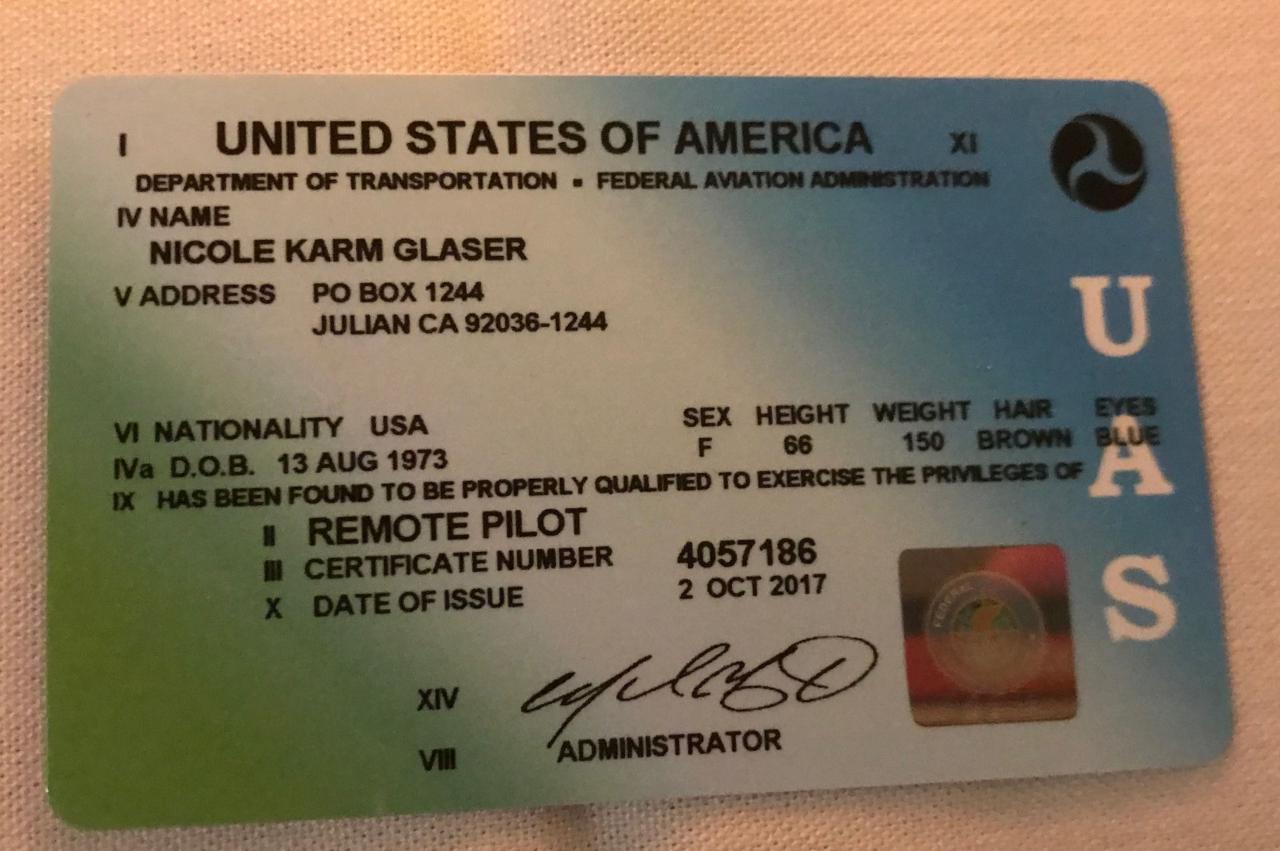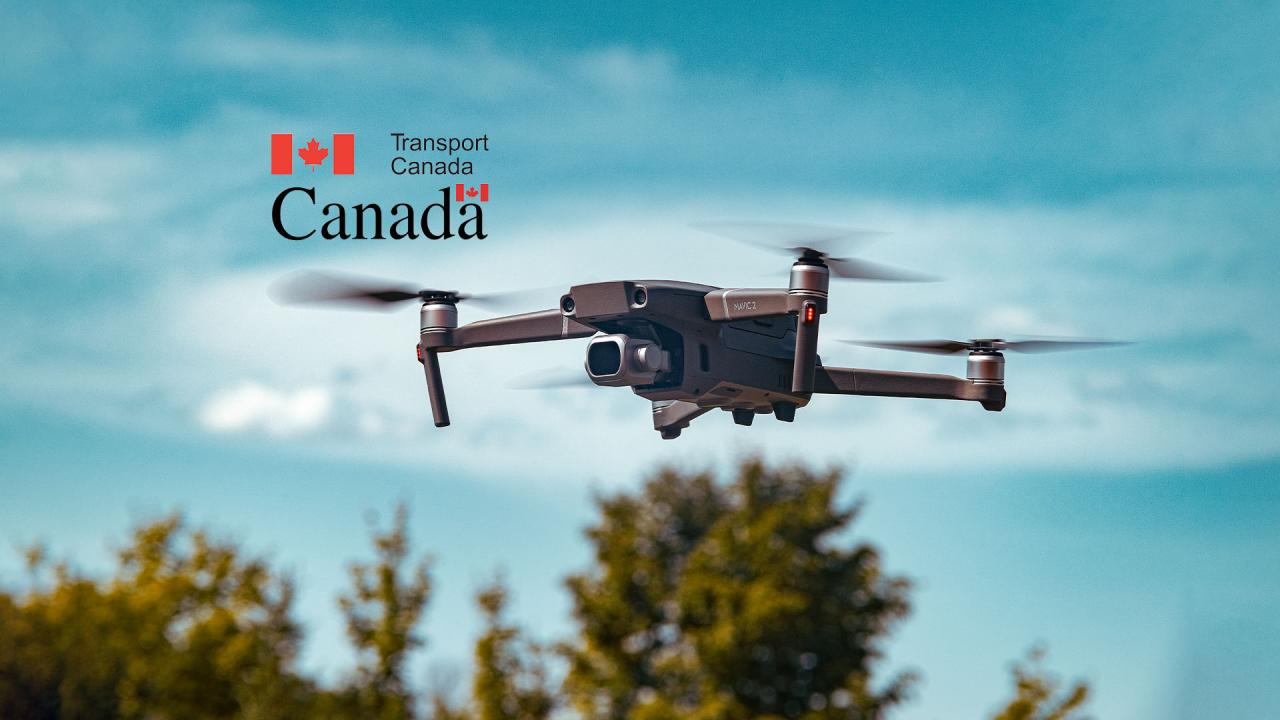Drone Pilot License Canada: So you want to fly drones legally in the Great White North? This isn’t just about buzzing around – it’s about understanding the rules, regulations, and opportunities that come with operating a drone in Canada. From understanding the different license classes and their requirements to navigating the airspace restrictions and finding the right training, we’ll cover everything you need to know to become a responsible and successful drone pilot.
Thinking about getting your drone pilot license in Canada? Before you fly, make sure your connection’s solid; knowing your WiFi speed is key for efficient drone control and data transfer. Check your iPhone’s WiFi GHz by following these simple steps: how to check your wifi ghz on iphone. A strong signal ensures smooth operation, a crucial factor for safe and successful drone flights as you prepare for your Canadian drone pilot license exam.
This guide breaks down the process of obtaining a drone pilot license in Canada, covering everything from the application process and required documentation to the various regulations governing drone operation. We’ll also explore the different types of drones, essential maintenance practices, and the exciting career prospects available to licensed drone pilots in diverse industries.
Canadian Drone Pilot Licensing: A Comprehensive Guide

Navigating the world of drone piloting in Canada requires understanding the licensing requirements, operational regulations, and career opportunities available. This guide provides a clear overview of these aspects, empowering you to fly safely and legally.
Licensing Requirements in Canada, Drone pilot license canada
Canada’s drone regulations are structured around different license classes, each with specific requirements and operational limitations. Understanding these differences is crucial for safe and legal drone operation.
The licensing system categorizes drone pilots based on the complexity of their operations and the potential risks involved. This ensures that pilots possess the necessary skills and knowledge to handle their respective drone operations responsibly.
| License Class | Operational Limitations | Knowledge Requirements | Skills Requirements |
|---|---|---|---|
| Basic Operation Certificate (for drones under 25kg) | Visual Line of Sight (VLOS) only, limited operational areas, specific altitude restrictions. | Basic knowledge of airspace regulations, safety procedures, and drone operation. | Competency in basic drone piloting skills, including takeoff, landing, and maneuvering. |
| Advanced Operation Certificate (for drones under 25kg and beyond VLOS operations) | Beyond Visual Line of Sight (BVLOS) operations may be permitted under specific conditions and with additional authorizations. More complex operational scenarios. | Advanced knowledge of airspace regulations, safety procedures, risk assessment, and emergency procedures. | Proficiency in advanced drone piloting skills, including flight planning, risk mitigation, and emergency response. |
| Special Flight Operation Certificate (SFOC) (for all drone sizes and operations) | For complex operations requiring specific authorizations, such as flights over populated areas or near airports. | Comprehensive understanding of airspace regulations, safety procedures, risk management, and specialized operational knowledge. | Expert level drone piloting skills, ability to manage complex flight scenarios, and extensive experience. |
The application process typically involves completing a knowledge test, demonstrating practical skills, and submitting the necessary documentation and fees to Transport Canada.
Operational Regulations and Restrictions
Operating a drone in Canada requires adherence to strict regulations to ensure safety and prevent accidents. These rules cover various aspects of drone flight, from registration to operational limitations near sensitive areas.
- Drones must be registered with Transport Canada.
- Flights must be conducted within Visual Line of Sight (VLOS) unless specific authorization is obtained.
- Flights are prohibited near airports, heliports, and other sensitive locations without appropriate permissions.
- Minimum safe distances must be maintained from people and property.
- Operations are restricted in certain areas, such as national parks and wildlife sanctuaries, without permits.
Failing to comply with these regulations can result in penalties, including fines and the suspension or revocation of operating privileges.
Training and Certification Programs
Numerous training programs across Canada prepare aspiring drone pilots for various license classes. These programs vary in curriculum, duration, and cost, catering to different skill levels and career aspirations.
A sample training schedule might include modules on drone regulations, flight planning, safety procedures, emergency protocols, and maintenance.
Thinking about getting your drone pilot license in Canada? Before you fly, make sure your connection’s solid; knowing your WiFi speed is key for efficient drone control and data transfer. Check your iPhone’s WiFi GHz by following these simple steps: how to check your wifi ghz on iphone. A strong signal ensures smooth operation, a crucial factor for safe and successful drone flights as you prepare for your Canadian drone pilot license exam.
- Module 1: Drone Regulations and Safety
- Module 2: Flight Planning and Navigation
- Module 3: Emergency Procedures and Risk Mitigation
- Module 4: Drone Maintenance and Inspection
- Module 5: Practical Flight Training
Drone Technology and Maintenance

The Canadian drone market features a variety of drones with different capabilities, ranging from small consumer models to large industrial platforms. Regular maintenance is vital for ensuring safe and reliable operation.
Common drone malfunctions include battery issues, motor failures, and GPS problems. Proper maintenance and troubleshooting are essential for minimizing downtime and preventing accidents.
Career Opportunities for Drone Pilots

The increasing use of drones across diverse industries has created significant career opportunities for skilled pilots. The job market is expanding in sectors like agriculture, construction, infrastructure inspection, and filmmaking.
Salaries vary depending on experience, skills, and the industry. Resources for finding drone pilot jobs include online job boards, industry networking events, and direct applications to companies.
Insurance and Liability for Drone Operations
Comprehensive insurance coverage is crucial for protecting against potential liabilities associated with drone accidents or incidents. This coverage can safeguard against property damage, personal injury, and legal costs.
Thinking about getting your drone pilot license in Canada? Solid wifi is crucial for drone operation and data transfer, especially in remote areas. You’ll need a reliable connection, so consider investing in a good amplificateur wifi to boost your signal. This will ensure smooth flights and reliable data collection, vital for passing your drone pilot license exams and beyond.
Several insurance providers offer specialized policies for drone pilots, catering to different operational needs and risk levels. Understanding the nuances of these policies is essential for making informed decisions.
Visual Representation of Drone Flight Restrictions
A visual representation of restricted airspace near an airport would show concentric circles indicating no-fly zones and buffer areas. The innermost circle, closest to the airport, would represent a strict no-fly zone with a zero-altitude restriction. Subsequent circles would denote progressively less restrictive areas with increasing altitude allowances. Specific distances and altitude restrictions would be clearly labeled.
A visual representation of safe operating distances from people and property would depict a minimum distance radius around individuals and structures. This radius would be clearly marked, indicating the minimum safe separation required during drone operation.
End of Discussion: Drone Pilot License Canada
Becoming a drone pilot in Canada offers a blend of exciting technological challenges and rewarding career opportunities. By understanding the licensing requirements, adhering to safety regulations, and investing in proper training, you can unlock a world of possibilities. Whether your passion lies in aerial photography, agriculture, construction, or another field, the path to becoming a certified drone pilot is clear, and the rewards are substantial.
So, take the next step and explore the skies responsibly.
FAQ Explained
What’s the age requirement for a drone pilot license in Canada?
There’s no minimum age, but you must be able to understand and follow the regulations.
How long does it take to get a drone pilot license?
The time varies depending on the training and application processing.
Can I fly my drone at night?
Night flights usually require additional certifications and permissions.
What type of insurance do I need?
Liability insurance is recommended to cover potential damages or injuries.